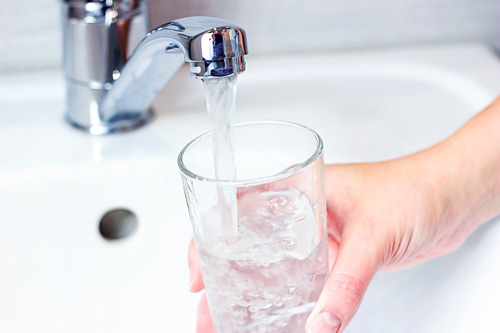Water quality plays a crucial role in our daily lives, and certain indicators can alert us to potential issues. In this case study, we will explore three common problems associated with water quality: water hardness, iron content, and the unpleasant odor of rotten eggs in hot water. Understanding these issues can help you identify and address water quality concerns effectively.
- Water Hardness: Water hardness refers to the concentration of dissolved minerals, such as calcium and magnesium ions, in the water. When water percolates through deposits of limestone and chalk, it picks up these minerals, resulting in hard water. Hardness is typically measured in grains per gallon (GPG) or parts per million (PPM). Hard water can lead to mineral buildup in pipes and appliances, reduce the effectiveness of soaps and detergents, and leave residue or scale on fixtures.
- Iron Content: Iron is a common element found naturally in the Earth’s crust. It can enter water supplies through groundwater sources that come into contact with iron-containing minerals or corroded iron pipes. High concentrations of iron in water can cause reddish-brown stains on sinks, toilets, and laundry, impart a metallic taste to the water, and even clog plumbing systems. Additionally, iron can promote the growth of certain bacteria.
- Rotten Egg Smell: The presence of a foul odor resembling rotten eggs or sulfur in hot water is often associated with hydrogen sulfide gas. Hydrogen sulfide forms when organic matter decomposes in groundwater or when specific types of bacteria are present. Although low concentrations of hydrogen sulfide are generally not harmful, the odor can be highly unpleasant. Moreover, it can corrode plumbing fixtures and cause black stains.
It’s important to note that the presence of these issues can vary depending on the water source and local conditions. If you are experiencing any of these problems with your hot water, it is recommended to have your water tested by a certified laboratory to determine the exact cause and appropriate treatment options. Atlantic Blue can help take care of all of the above, including free secondary testing and primary testing with a certified lab if requested.
Water Quality Assessment
Assessing the quality of your water supply is the first step in choosing the right filtration system. It is important to understand the specific contaminants present in your water, such as sediments, chemicals, bacteria, or heavy metals.
Conducting a water quality test will provide valuable information about the composition of your water and help determine the appropriate type of filtration system required.
Understanding the Local Water Quality
In our specific area, we have measured the following water quality parameters:
- pH: 7.0 (neutral)
- Hardness: 5 grains per gallon (moderately hard water)
- Iron: 0.3 parts per million (within the EPA-recommended limit)
- Total Dissolved Solids: 120 parts per million (below the EPA-recommended threshold)
- Sulfur (rotten egg smell) present in both hot and cold water.
Our Solution
To address the specific water quality issues in our area, we recommend the following solutions:
- Water Softener CareSoft Elite: This unit effectively removes ferrous iron and hardness from the water, protecting fixtures and investments throughout the entire home. It features Water Efficient Technology, reducing salt usage. Visit this link to learn more: High-Performance Water Softener | Hard Water Solution with CareSoft Elite® (watercare.com)
- Sediment Filter: This filter is installed before the Water Softener to remove ferric iron coming from the well.
- Chemical Feed Pump: This injection system is filled with chlorine and water to remediate the sulfur (rotten egg) smell throughout the entire home.
Results and Testimonial
After implementing these solutions, we conducted a 30-day retest, which yielded impressive results:
- pH: 7.0
- Hardness: 0 grains per gallon
- Iron: None detected
- Total Dissolved Solids: 132 parts per million
Specific water problems that were resolved after our visit included:
- Elimination of iron staining around toilet bowls, bathtubs, and bathroom sinks.
- Removal of hard water spots on dishes from the dishwasher and hard water buildup on shower heads and faucets.
- Remediation of the sulfur (rotten egg smell) issue.
Conclusion
Water quality issues, such as water hardness, iron content, and rotten egg smell, can significantly impact our daily lives. Understanding the causes and implementing effective solutions is crucial to ensure safe and pleasant water for your household. If you encounter any of these problems, it is recommended to have your water tested by a certified laboratory and seek professional assistance to address the specific issues. Atlantic Blue Water Services can provide comprehensive solutions, including free water testing with our certified laboratory if requested. Take control of your water quality and enjoy a healthier, more enjoyable living environment.

